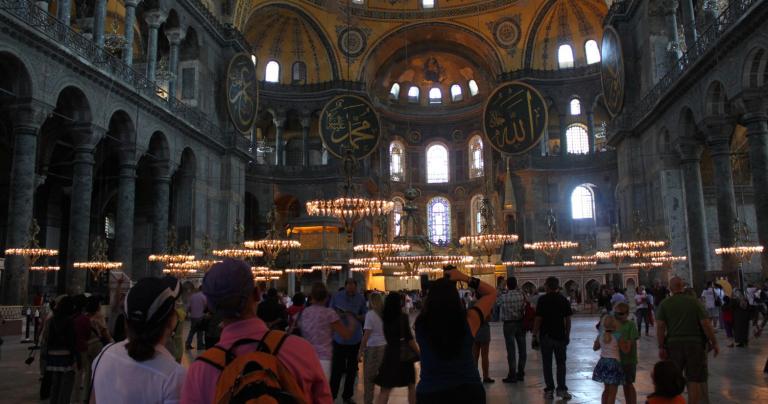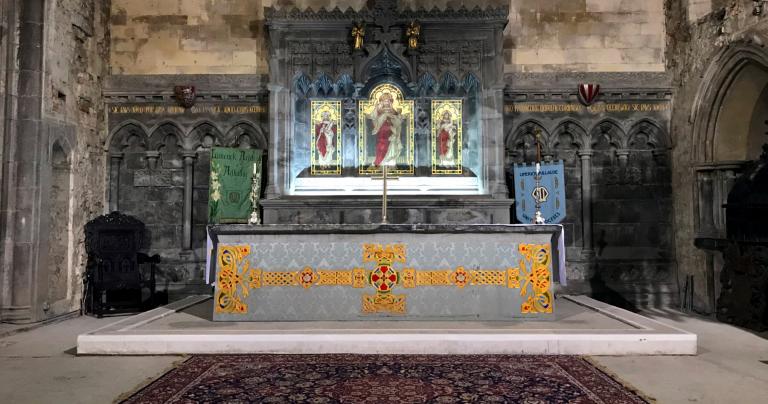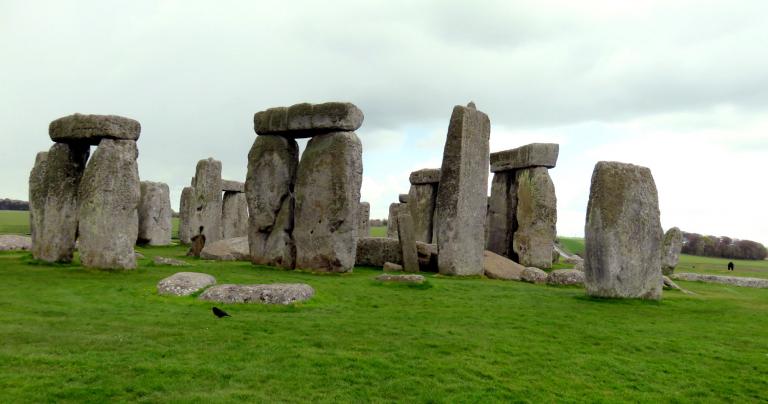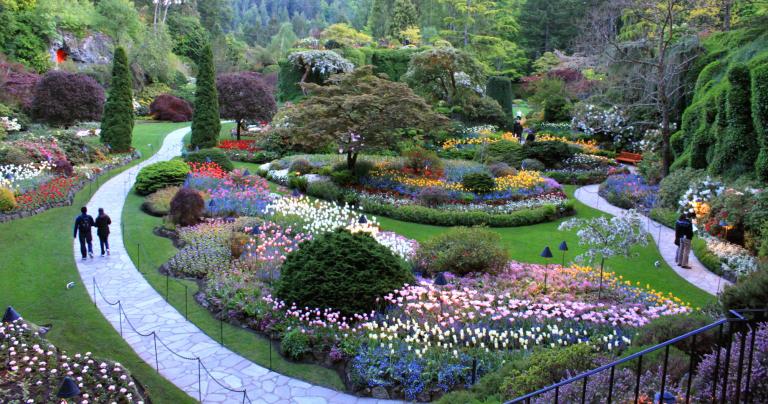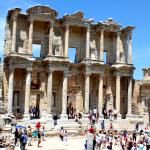I keep saying I’ve had enough of arguing with people trying to convert me, and yet here I am, arguing with them again. But there’s something more I need to say and so I’m going to say it while I can. Then I need to get back to writing about Paganism for Pagans.
I try to avoid definitive statements. Even when I’m absolutely sure of something (like the existence of the Gods as individual beings, or the efficacy of magic) I try to make it clear that I respect opposing views. In part that’s because I really do respect opposing views, but it’s also because I don’t want to deal with people who think everything is relative and who will nitpick it like some teenager on Reddit.
But I am sure of this, so I’m going to state it definitively: a world with many religions is better than a world with only one.
Here’s why.
There is power and beauty in all religions
Religion is a human invention, and like all human inventions it is imperfect and subject to misuse. Atheists are right to point out misdeeds (some of which reach the level of atrocities) done in the name of religion, but they miss the powerful and beautiful experiences our many religions bring us.
There is the inner peace instilled through Buddhist meditation. The beauty of Hindu worship and iconography. The hospitality and reciprocity of modern Paganism. The connections and cohesion of tribal religions. As much as I did not do well in the Baptist church, I must admit there is power in gospel music. And there was genuine love and compassion in the “casserole ministry” that brought food to people who were sick or grieving.
I know of no religion that couldn’t use some cleaning up. But which of these beautiful and powerful traditions can you rightly eliminate? None of them.
Monopolies inevitably lead to corruption and oppression
We need only look at Europe in the Middle Ages to see what happens when there is one and only one religious choice. The religion forgets its mission and becomes corrupt. Say what you will about the weaknesses of Protestantism – the Catholic church had it coming.
In a religiously plural and free society, people can leave religions that become corrupt, or that fail to address critical issues of the day. In this country, both Baptists and Presbyterians split over the issue of slavery. Some contemporary Baptists have left the Southern Baptist Convention over their treatment of women and LGBTQ people.
But if there is only one religion, there is no place else to go.
Everyone has the inherent right of self-determination
Humans are social animals – we do better in communities than in isolation. But we are mammals and primates, not insects. Every one of us is a unique individual with our own needs and desires. Part (though far from all) of what it means to be human is to participate in our own journey of self-discovery and self-determination.
But how can we do that if there’s only one religion? Not only will there not be any readily available alternatives, history shows that one of the reasons religious monopolies become corrupt and oppressive is that they start worrying about maintaining their monopoly status. They demand orthodoxy, they start inquisitions, and from there it’s a short walk to burning heretics.
When there are many religions, each one can set their boundaries as their tradition demands, knowing that if someone doesn’t belong there they can kick them out in good conscience. If there is only one religion, the only way to truly remove someone is to kill them.
And there are far too many people willing to kill to enforce orthodoxy.
Religious certainty is impossible
I can hear the monotheist exclusivists complaining now. “OK, but what if there really is only One True Way?” “What if burning heretics is necessary to keep them from leading innocent people into damnation?”
If someone breaks into my house, brandishes weapons, and starts screaming that they’re going to kill me, I am legally and morally justified in shooting them to protect myself. On the other hand, if they’re walking down the sidewalk minding their own business, I have no grounds to use force against them, even if they make me feel “uncomfortable.” In the first case I have reasonable certainty my life is in jeopardy – in the second case I do not.
There is no such thing as religious certainty. As sure as I am that the many Gods are real and that magic works, I cannot prove either to the satisfaction of disinterested skeptics, much less to dedicated practitioners of other religions. Nor can they prove the certainty of their religions to me. Every religion has evidence for its truth claims – none have proof.
If your standard is certainty, your only honest alternative is to be an agnostic and accept that you can know nothing.
Which One True Way do we choose?
And since we have no certainty, how can you know which religions you can safely eliminate? What if the One True Way was some obscure Germanic tribal religion that was wiped out in the 9th century?
Or what if the One True Way is Sunni Islam? I don’t think that’s the case any more than the Christian proselytizers do, but if you believe the consequences of making the wrong choice are eternal, you have to consider it.
Here’s the main point of this post: even if there really is One True Way, even if one form of one religion is correct and all others are false, we have no way of knowing which one it is. If the world has only one religion, maybe we get lucky and pick the right one. More likely, we pick the wrong one and everyone ends up in hell.
If you argue that your God is guiding everyone toward the One True Way, then I argue that given the many diverse religions that are meaningful and helpful to many diverse people and have been for thousands of years, your God is doing a pretty lousy job.
Or perhaps, choosing the “right” religion isn’t what’s most important.
A glorious garden of religions
I often speak of the “marketplace of religions.” I don’t remember where I first heard that term, but it’s not mine. It’s an accurate metaphor for the religious environment of 21st century America, and much of the rest of the world. Think of a bazaar – or if you’re particularly cynical, a flea market – where purveyors of every religion currently known to humanity are offering their wares. Religious seekers have more options today than at any time in the history of humanity – including the option to walk out of the marketplace without buying anything.
Some of you don’t like the term “marketplace.” It implies that a sacred journey of discovery can be reduced to a financial transaction (for some it is, but that’s another rant for another time).
So instead, let’s consider a garden of religions. Here are the tulips and there are the daisies, both beautiful sights. That corner has carrots and potatoes – it looks like ordinary greens, but there’s something important beneath the surface. There are the sunflowers growing tall – here are the vines staying close to the ground. And there are the roses – be careful, they have thorns.
By all means, wander around. Explore the various sections of our garden of religions. Use your senses – all your senses. What looks or smells or tastes true to you? What calls to you? Find your spot and start tending the garden.
Does it make your life better? Not easier – good religion rarely makes things easy. But better: deeper, more meaningful, less fearful, more connected. If so, keep tending that part of the garden, and see what grows.
And remember that the folks in the other sections of the garden aren’t wrong. They’re just different.


